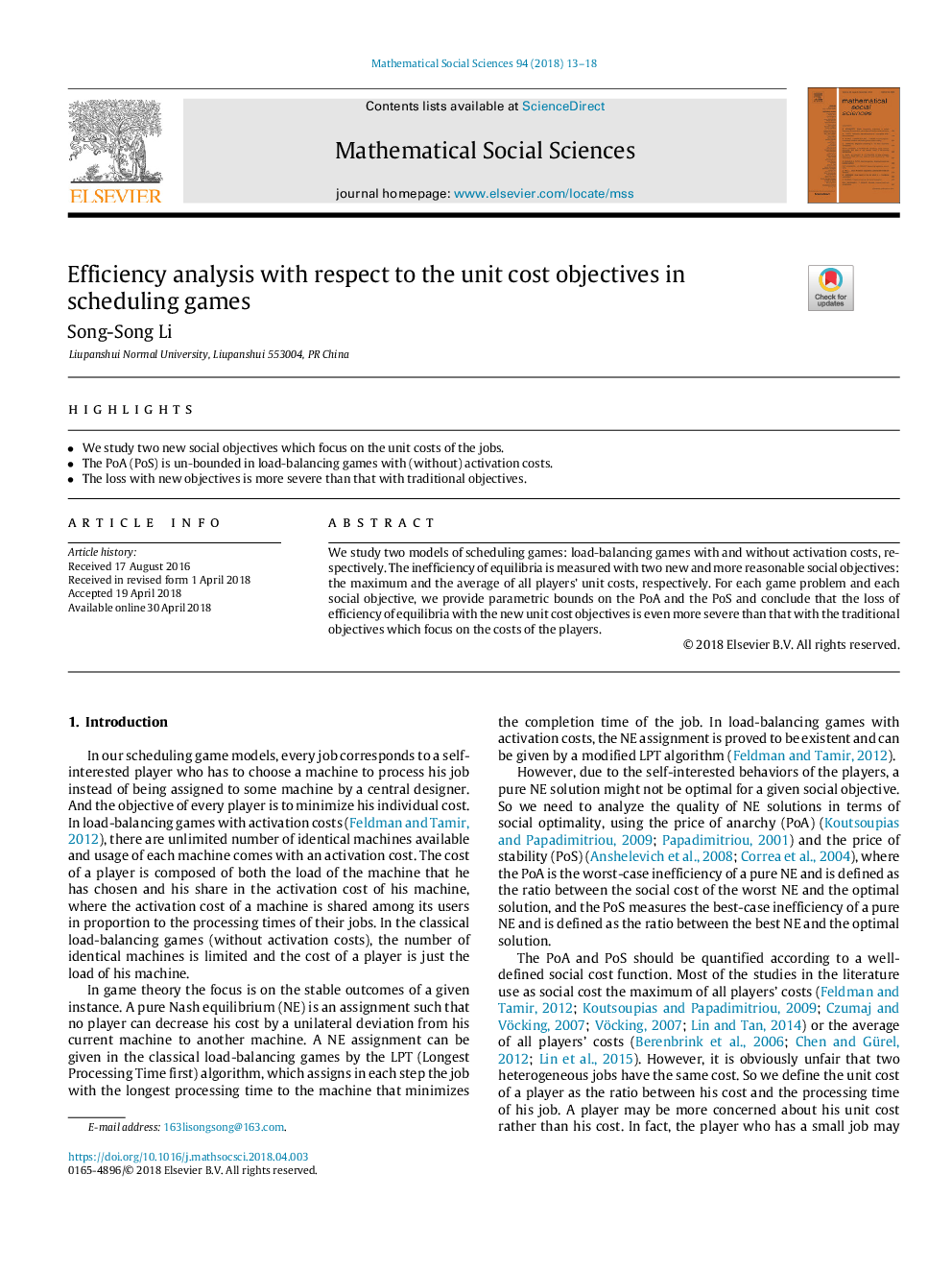| Article ID | Journal | Published Year | Pages | File Type |
|---|---|---|---|---|
| 7372593 | Mathematical Social Sciences | 2018 | 6 Pages |
Abstract
We study two models of scheduling games: load-balancing games with and without activation costs, respectively. The inefficiency of equilibria is measured with two new and more reasonable social objectives: the maximum and the average of all players' unit costs, respectively. For each game problem and each social objective, we provide parametric bounds on the PoA and the PoS and conclude that the loss of efficiency of equilibria with the new unit cost objectives is even more severe than that with the traditional objectives which focus on the costs of the players.
Related Topics
Physical Sciences and Engineering
Mathematics
Applied Mathematics
Authors
Song-Song Li,
